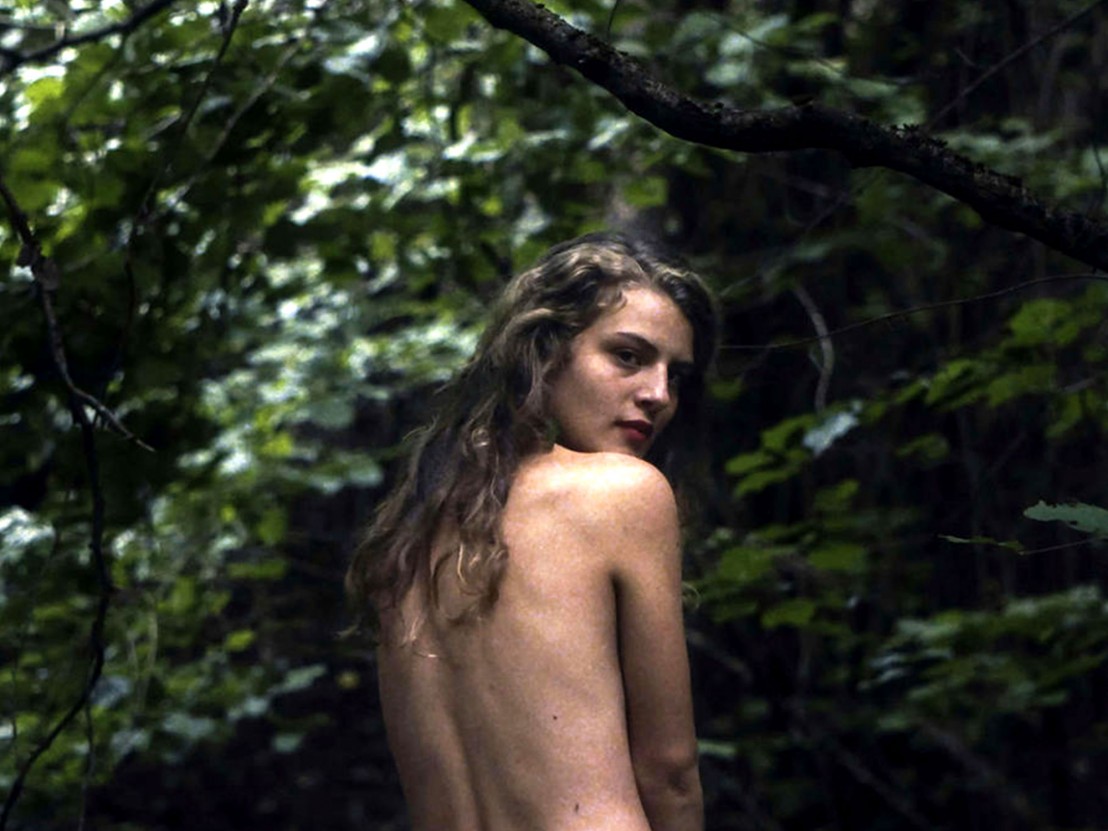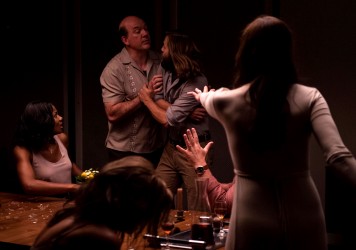
Since its inception, cinema has been a projection of dreams, an extension of the body and an agent of disruption. At the heart of cinema’s appeal is its eroticism and at the heart of eroticism is transgression. With the aim of keeping eroticism in cinema, Le Festival du Film de Fesses recently screened a selection of 11 short erotic films at the Phi Centre in Montreal. The question of eroticism in the modern age seems increasingly fractured, more accessible than ever, but still stigmatised on the big screen.
The late 1960s and early ’70s was an exceptional period in which pornographic films gained mainstream popularity. In the US, films like Deep Throat and Devil in Miss Jones attracted massive audiences. Internationally, movies like I Am Curious (Yellow), Emmanuelle and Deux Femmes en Or were also making waves. While the debate surrounding the actual box office records of these films remains, even conservatively speaking, Deep Throat made at least $25 million in theatres. What seemed impossible just 10 years earlier, as indecency laws dragged filmmakers like Russ Meyer to court in the early ’60s, briefly became a reality. Even today, the idea of even softcore pornography screening to mass audiences seems untenable.
The question of what constitutes eroticism today becomes vital when looking at the collection of shorts from the Le Festival du Film de Fesses programme. What counts as transgressive in the age of online pornography? What passes for erotic cinema in 2016?
One of the big shifts in erotic consciousness from the past to now lies in the transition from celluloid to digital. The French always referred to celluloid as ‘pellicule’, another word for skin. The idea of the haptic image, the idea of touching with your eyes, has evolved from something tactile to ethereal. Among the film’s screened as part of the festival, Peter Tscherkassky’s The Exquisite Corpus seems most preoccupied by this transition, creating a montage dream of old pornographic and advertising images. Told as a story of naked village people living by the ocean, an evocation of FW Murnau’s Tabu: A Story of the South Seas, a young naked girl falls asleep on the beach and finds her dreams invaded by an onslaught of vibrating and crackling images. Perhaps the most obviously tantalising film of the grouping as well, Tscherkassky draws on the tactility of film itself to inspire feelings of longing and desire.
Films that are actively tantalising, as with The Exquisite Corpus, present a unique experience in a theatrical setting. Seeing a film before an audience presents the opportunity for shared experiences, one of the reasons why genre films like horror and comedy are as popular as social experiences as they are cinematic ones. Eroticism and sex present a different challenge as experiencing arousal or desire in the cinema can be uncomfortable. It remains itself, a transgressive experience. Sex can and should be fun, but it’s hard not to admire films that forego comedy for actual erotic arousal. Sex by way of comedy gives the audience a comfortable distance from the material, an out from engaging with the forbidden, and facing any desire head-on.
The River Under the Tongue, directed by Carmen Jaquier, anticipates eroticism without needing to depict sex. Set in a lush forest, it follows three generations of women as they travel through the woods. A mother has read her daughter’s diary, to find a collection of sexual desires and experiences. The film defies any familiar time period, with no evidence of technology except cars. It’s a timeless story of growing up and connecting with our hidden selves. The diary entries that overlap images of the forest, both lived and imagined, create an aching pace of wanting. The intimate version of yourself that emerges only through your desires edges at the peripheries of those closest to you, your family. As the mother comes to terms with the unknowability of that part of her adult daughter’s life, she struggles even to connect to her pubescent daughter who will soon follow down that same path of erotic awakening. The film feels timeless, an asset and a burden.
Eroticism, not unlike horror, is often of the moment because morals and habits change: collective desire often reflecting deeper impulses of the collective than anything else. Daring to present a film or a vision that feels unique to the now feels more daring, and of the eleven films screened, only three films feel deeply and intimately connected to the contemporary.
Notre héritage, by Jonathan Vinel and Caroline Poggi, explores the burgeoning relationship between two teens as the adolescent boy comes to terms with his father’s work as a porn recruiter in Russia. Using lo-fi digital effects, the film evokes a kind of meme culture where we become (or rage against) the porn we watch.The film’s style often works against deeper insights, taking on an atmosphere of cold detachment and the affected style of an edgy perfume ad. It still has subversive elements, and the found footage style use of actual pornographic recruitment tapes are used poetically, infusing them by way of context and voice over with longing, melancholy, and empathy without exploiting exploitation for easy outrage.
Similarly working with a kind of modification of the image is Alexis Langlois’ raucous and celebratory Fanfreluches et idées noires about a huge queer friendly party in a tiny french apartment. Like a series of Klimt paintings come to life, the film feels like a celebration of sexual identity and the film works as an elaborate tableau aesthetically and tonally, evoking by way of diversity, a primordial and sparkly spectacle of a community. Though overlong, the film still bounces with the now through its intuitive use of music and a mercifully brief emoji cat cartoon interlude.
Of the short collection, perhaps the most bewildering and challenging is the experimental Panoptik, directed by Alexandre Rufin. A disturbingly real faux documentary about an amateur small-scale porn magnate in Quebec, the film utilises entrancing techniques of obscuring the image through editing and image manipulation. Through the filter of this recruiter, a brash, long-haired egoist with a high pitched giggle masquerading as a laugh, the film tackles the blurring line between sex as intimacy and sex as performance. Playing on the word Panoptic, meaning to see a totality or a whole of points of view all at once, the film presents contemporary desire as fractured to the point of being divorced from the self.
Sex in the film teases at pornography without ever revealing much at all. The recruitment tapes, and much of the documentary footage feels painfully real. The loneliness of the subjects and of the recruiter palpable in their vulnerability and insatiable hunger. In the confounding totality of the sexual experience, the film feels truly transgressive in its treatment of exploitative sex as somehow cathartic in its self-immolation. Through gesture and desire, the film challenges the idea of sexual liberation by way of personal autonomy, depicting desperation and loneliness as a powerful and uncomfortable aphrodisiac. Experimental in style, Panoptik blurs lines between the real and the imagined, channeling poetically the filters of censorship and delayed gratification through the distortion of images and identities.
Erotic cinema is not yet dead, coasting on our ever changing stipulations for healthy desire. Art-house films still challenge audiences with images of sex and eroticism, while these tenants have all but disappeared from mainstream cinemas excepting the occasional myopic teen sex comedy. The mandate of Le Festival du Film de Fesses still feels fresh and necessary, challenging the limits of the cinematic experience, and encouraging an exploration of hidden wants and desires.
Published 24 Aug 2016

Erika Lust is a Swedish porn director informed by sex-positive, feminist, art-film values.

By Katy Vans
Karyn Kusama and St Vincent’s Annie Clark are among those contributing to an all-female anthology film.

Models Elena and Manuela Lazic use their insider experience to take a closer look at Nicolas Winding Refn’s LA fantasy.